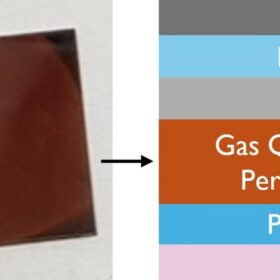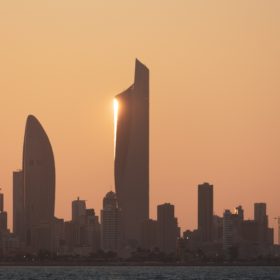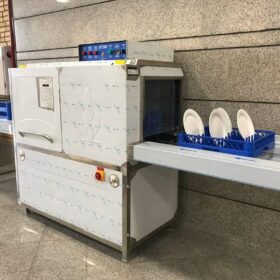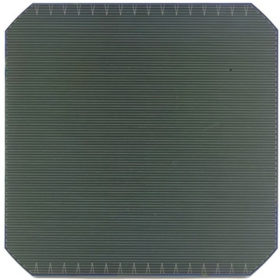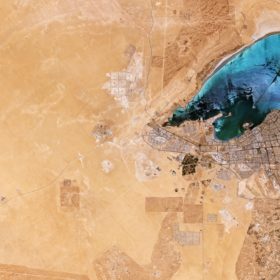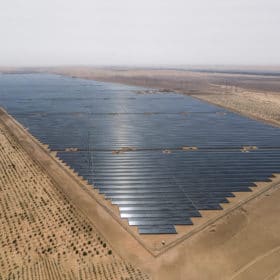Gas quenching with helium, argon for more stable perovskite solar cells
Kuwait University researchers investigated the relationship between the molecular weight of the quenching gas and the morphology of perovskite films used in solar cells, finding that argon and helium extended device lifetimes compared to using the more conventional nitrogen.
Why and where solar PV succeeded in Arab Gulf states
A US-UAE research team has investigated how regulatory regimes impacted solar power deployment across six Arab states of the Persian Gulf. Their findings show that the predominant role of the state is expected to continue.
How to power 4G, 5G cellular base stations with photovoltaics, hydrogen
Scientists have simulated a 4G and 5G cellular base station in Kuwait, powered by a combination of solar energy, hydrogen, and a diesel generator. The lowest cost of energy was found to be $0.0714/kWh.
Solar advances across MENA region
The fossil fuel rich Middle East and North Africa (MENA) region faces mounting pressure to diversify its energy mix. While solar is cheap, it faces significant sociopolitical and economic challenges.
Off-grid solar-wind power plant design for green hydrogen generation
Scientists in Czechia have conducted a techno-economic analysis of a green hydrogen production system powered exclusively by photovoltaic and wind energy. The system uses surplus energy for water treatment and, according to its creator, can achieve a levelized cost of hydrogen of $3.12/kg.
Kuwait tenders 1.1 GW solar project
Kuwait has tendered a 1.1 GW solar project to supply electricity to the Ministry of Electricity, Water, and Renewable Energy under a 30-year power purchase agreement (PPA).
Using air conditioning to cool down PV modules, dry dishes
An international research team has investigated how air conditioning may be used to reduce the operating temperature of PV panels. The researchers not only found that the proposed approach is technically viable, but they also tested the use of excess heat from the panels for drying dishes.
Large-area bifacial TOPCon solar cell with 23.01% efficiency
The n-type cell was built with phosphorus-doped LPCVD poly-Si passivating contacts and achieved a remarkable open-circuit voltage of 691.7 mV. According to its creators, with some adjustments the cell may be suitable for commercial production.
Proposals received for latest version of delayed Kuwaiti gigasolar project
With the Dabdaba/Al-Dibdibah solar field now having been combined with the Shagaya clean energy development, bids for the former’s EPC contract were reportedly received last week. It is unclear whether the facility will have a generation capacity of 1 GW, 1.5 GW or ‘up to 3 GW.’
Strong growth predicted for Middle Eastern solar PV
The Middle East, and the Gulf in particular, has been home to record low solar tariffs in recent years. Major projects are being awarded via tenders, with prices gradually closing in on a remarkable 1 USDct/kWh. Of course, this is no coincidence due to the region’s favorable solar conditions: availability of cheap and sunny desert land, low labor costs, cheap project financing, supportive tax regimes, large projects benefitting from economies of scale, well designed tender structures, and decreasing PV component prices.
